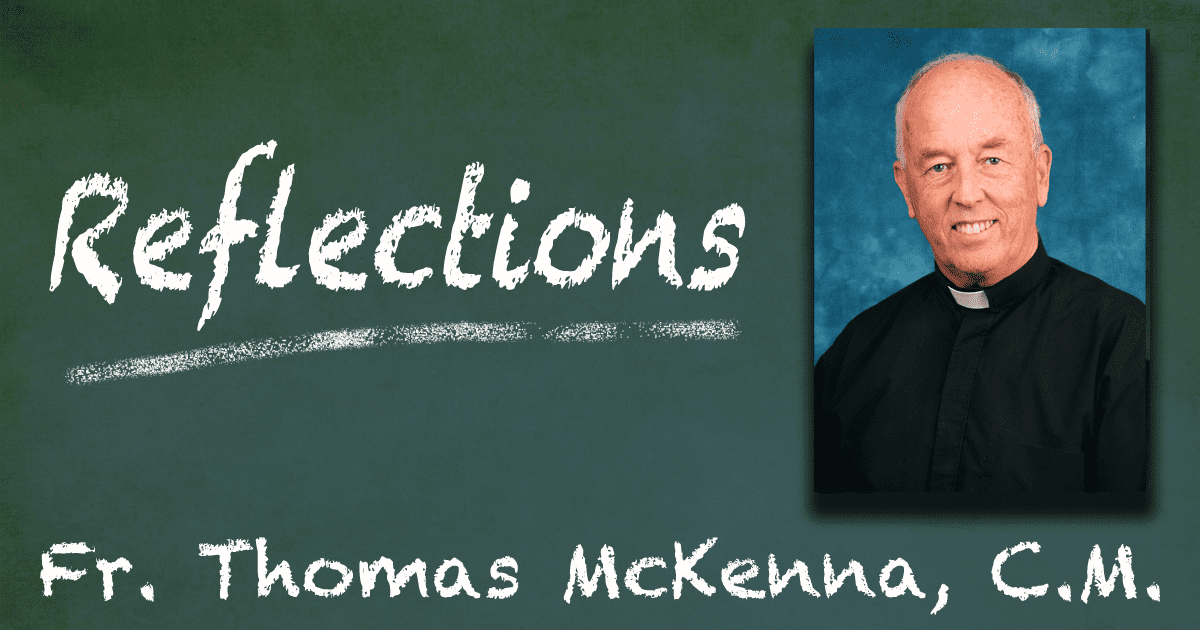There’s a phrase which often enough appears in stories having to do with someone coming up against his or her limits. The phrase is “reach back.” Somebody is in a desperate situation thinking there is no way to get past it, and then “reaches back” for something more – and finds it. It might be someone in a marathon at the point of exhaustion – but then finds an energy rising up from somewhere beyond him. Or someone who is so badly hurt she can’t forgive – but, in touch with something else, she forgives anyhow. Or citizens rocked to their core wondering if their country can even hold together – then finding that “something more” coming from another place that leads them through.
Such people testify to a strength that is not theirs, a power just beyond their grasp. But when they reach back for it, it’s there.
Those kinds of happenings occur in the life of Our Lord Jesus. What was his experience when he came up against dead-end situations, for instance when rejected by religious leaders, or deserted by his disciples, or sentenced to death by crucifixion? If we could depict what he “reached back for,” what would that be?
In his recounting of Jesus’ baptism, St. Mark gives an answer. John the Baptist has lowered Jesus into the Jordan River. As he comes up out of the waters, he hears these words, “You are my Beloved. I am exceedingly pleased with you.” I love you. Mark identifies the speaker as “The Spirit,” the very breath of God (better the very breathing of God). These are the words Jesus hears when he reaches back: “You are my Beloved. I love you.”
This phrase is the giveaway to the essence and core of Jesus’ strength. It is love, the power coming to a person when he or she is assured that he is the beloved, that she is precious and singled out as loveable. The force of that truth infuses strength and perseverance and hope into Jesus all through.
So many saints and writers have insisted that these words, “You are my Beloved,” carry the loving weight of how God looks on each of us – as God’s people, God’s family, God’s children. They would have us imagine God’s eyes — and then picture those eyes as loving ones, gazing at each one of us with us with tenderness and concern, with deep desire for our well-being. How do I stand in God’s eyes? As the beloved, the cherished one, each one of us the favorite. Or as St. John in another place would say, “We love God because God has loved us first.”
And did not St. Vincent come to lean back on this saving truth. Paraphrasing a section of his Common Rules, “…‘the Love of God’ which is so great that human understanding can’t grasp it; enlightenment from on high is needed to raise us up to show us the height and depth, the breadth and excellence of this love. (Volume: 12; p. 213)
This remains true all the time, but especially when people in these crisis situations get that “nothing left” feeling. They reach back — and testify to the arrival of that something more, that store of resilience they realize can’t be coming only from themselves.
As our faith sees it, this extra, from-beyond something is God’s caring love, coming to us from the outside, infusing strength and resolve — if we surrender our own hearts to this Great Heart, this Sacred Heart. This fortifying and rescuing love has a name: The Holy Spirit, God’s breath inside our breath, God breathing through our breathing.
- It’s this same Holy Spirit there at Jesus’ baptism insisting he is The Beloved.
- It’s the same Holy Spirit filling Jesus all along and especially in that hour on the cross when He hands Himself over to his Father.
- It’s the same Holy Spirit whom each of us can “reach back for” when we come up against those times which seem beyond our strength.
Come Holy Spirit, fill the hearts of us faithful, kindle in us the fire of Your Love, — and, reaching back, we shall renew the face of the earth.








0 Comments